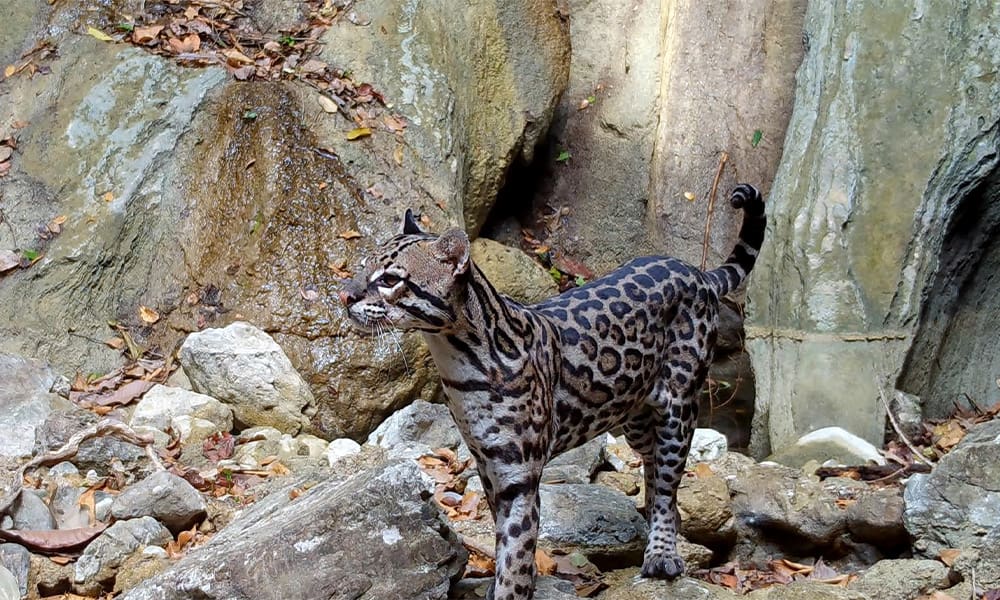There are a thousand ways a potentially beautiful camera trap wildlife video can be ruined but every once in a great while, everything works out just right, and you record the perfect video.
My job is to record Costa Rica’s vast biodiversity using amazing little devices that record 20 seconds of reality that no person is there to see with their own eyes. I secure a camera to a tree and when the motion sensor detects a certain threshold of movement, the camera begins recording.
When I first started, just about every video amazed me. There are so many different species prowling the forests here that each new species or new glimpse of interesting animal behavior that I recorded was a cause for celebration. After five years and tens of thousands of videos later, the bar for shouting ‘Whoo hoo!’ at my computer screen has risen considerably.
There are innumerable tiny, little, details that are enough for me to think ‘That video would great if it wasn’t for…’ that stick that fell in the foreground, the light wasn’t quite right, the animal was way off to the left or the lens was a little foggy from the previous night’s rain. It’s the little imperfections in otherwise fantastic recordings that break my heart just a little bit.
Every once in a while, the stars align, the light is flawless, the animal centers itself in the frame and everything works out just right to record the perfect video. That is exactly what happened a little over a year ago in the coastal forests of Guanacaste when I was carrying out a camera trap project for my friend Harry Hamilton.
It was the end of dry season, which is a wonderful time for camera traps because placing a camera on the remaining puddles of water means almost guaranteed success. I trudged up a dry riverbed, turned into a dry streambed that during rainy season would have added to the river’s flow.
I walked upstream until I hit a six-foot tall ridge of rock that would have been the site of a waterfall if it was the time of year when the water was flowing. At that moment the only remaining water was a puddle at the base of the dry waterfall. There happened to be a huge log of a Guanacaste tree facing the puddle which was the ideal place to screw in my camera mount and place the camera trap.
I returned a month later to check the camera and there it was, the perfect video. A female ocelot centered herself perfectly in front of the camera. The late afternoon light was sublime. She even paused in front of the camera and flicked her tail in a thoroughly delightful manner. It was perfection. And best yet, it wasn’t just one perfect video, it was a series of four twenty second videos. So click on the video below and spend 80 perfect seconds with an ocelot from the wilds of Costa Rica.
Epilogue – I obviously left the camera trap in the exact same location after my first camera revision. I assumed the wonderful spot would continue to provide me with ideal videos for the remainder of the project. Well, when I went to check the camera a month afterwards, the dry streambeds were no longer dry. A series of storms had ended the dry season, the dry waterfall was an actual waterfall, the giant seemingly unmovable Guanacaste log had washed away, and I never saw that camera again.
About the Author
Vincent Losasso, founder of Guanacaste Wildlife Monitoring, is a biologist who works with camera traps throughout Costa Rica. Learn more about his projects on facebook or instagram. You can also email him at: vincent@guanacastewildlifemonitoring.com






